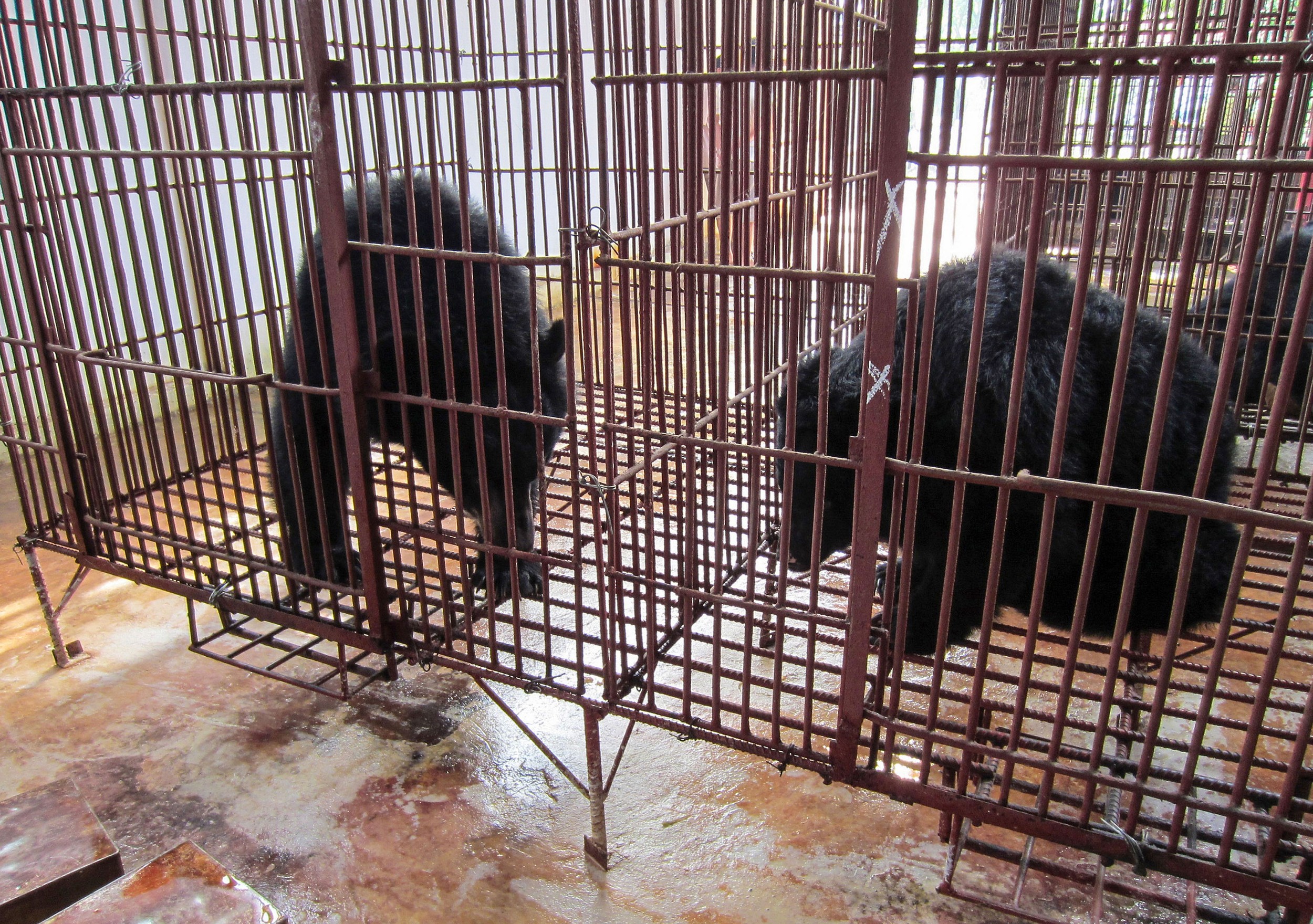
An international group of celebrities is calling for an end to the trapping and killing of black bears in Southeast Asia.
Under the auspices of Animals Asia, a Hong Kong-based charity group, the celebrities include perhaps most notably Olivia Newton John, the Australian singer, songwriter, and actress best known perhaps for her role as Sandy in the musical film “Grease.”
Their concerns focus on the plight of Asiatic black bears, whose numbers in the wild have been declining largely because of the demand for the bears’ bile, which is used in traditional medicine.
Another cause of the bears’ decline has been a steady loss of their habitat due to deforestation caused by the expansion of farming and industries.
The Swiss-based International Union for the Conservation of Nature and Natural Resources (IUCN) classifies Asiatic black bears as “vulnerable” across the swath of Asia from Iran to Japan where they live.
Hunters extract bile from captive bears via catheters or syringes, which can be painful for the bears.
Bear bile is a fluid that’s secreted by the liver and stored in the gallbladder. It contains ursodeoxycholic acid, which is medically proven to help dissolve gallstones.
But bear bile is also marketed as a cure for cancer, colds, and hangovers, although there’s no scientific evidence of its effectiveness in dealing with these ailments.
An Asiatic Black Bear in a cage looks on in a farm in Binh Duong province, Vietnam, one of 19 rare Asiatic black bears awaiting their next gall bladder milking on an illegal Taiwanese-owned operation in southern Vietnam, in a file photo. Credit: AP
1000 in captivity in Vietnam
According to Animals Asia spokesman Brian Daly, the NGO deploys altogether 300 staff members worldwide, with some 250 of them located in Vietnam and China, almost 30 in its Hong Kong headquarters, and more than 20 in other offices.
Black bears can be found in several Asian countries, with the largest number of them — 28,000 — located in China. But Animals Asia is focusing heavily at the moment on helping to halt the use of bear bile in Vietnam, where as many as 1,000 bears remain in captivity.
Animals Asia signed an agreement with the government of Vietnam three years ago to ensure a complete end to bear bile farming by 2022.
It’s illegal to hunt, kill, or capture wild animals in Vietnam, and violators can get up to 15 years in prison.
But loopholes in the law have allowed farmers to hold bears in captivity.
Some of the bears’ body parts are considered delicacies in Vietnam and elsewhere in Asia.
Much history lies behind all of this: Bear bile has been used in traditional Chinese medicine for thousands of years.
According to the National Geographic, the first reference to the bile appeared in an eighth century medical text which prescribed bear bile for maladies ranging from heart ailments to hemorrhoids.
In 2015, Animals Asia and the Vietnamese Traditional Medicine Association agreed to ensure a complete end to bear-bile prescriptions and practices by 2020.

A file photo of captive Asiatic Black Bears in Binh Duong, Vietnam. Credit: AFP
Rescue missions to free caged bears
The price of bear bile appears to have dropped since then. But the price to obtain a bear cub still remains relatively high at roughly $1,000 to $2,000.
Agreement was also reached between Animals Asia and the Vietnamese government to rescue remaining bears still caged in farms across Vietnam. These captive bears were believed at one point to number around 1,000.
Nearly all Asiatic black bears have white-colored fur on their chests forming a crescent shape, which gives them the common name “Moon Bear.”
In mid-July, as celebrities recorded their video messages calling for an end to the black bear trade, Animals Asia rescued two three-year-old moon bear cubs which had been illegally trapped and put on sale on the black market in Vietnam. They are now being cared for in a sanctuary in the Tam Dao National Park, which is located about 37 miles north of Hanoi.
Daly says Animals Asia has rescued 188 bears since setting up the sanctuary.
A movie produced by Animals Asia shows how before being rescued some bears had spent their entire lives confined to cages.
In the movie, a narrator describes how some of these bears were now learning for the first time in a sanctuary how to relate to other bears. Some prove to be nervous during their first encounters with other bears. Others quickly become friends.
In the movie, one bear is seen shyly stepping on grass for the first time. She exits a shelter and then retreats a few times after studying the look and feel of the grass.
Perhaps the most touching story is that of a bear given the name Cotton Blossom. She was located in a cage near Vietnam’s border with Cambodia where she served as a source for bile and had been confined for all of her 23 years. That’s more than half of the average bear’s lifetime.
Several rescuers coaxed her out of the cage and into a truck for a trip of some 660 miles to Animals Asia’s rescue center in the Tam Dao National Park.
Dan Southerland is RFA’s founding executive editor.